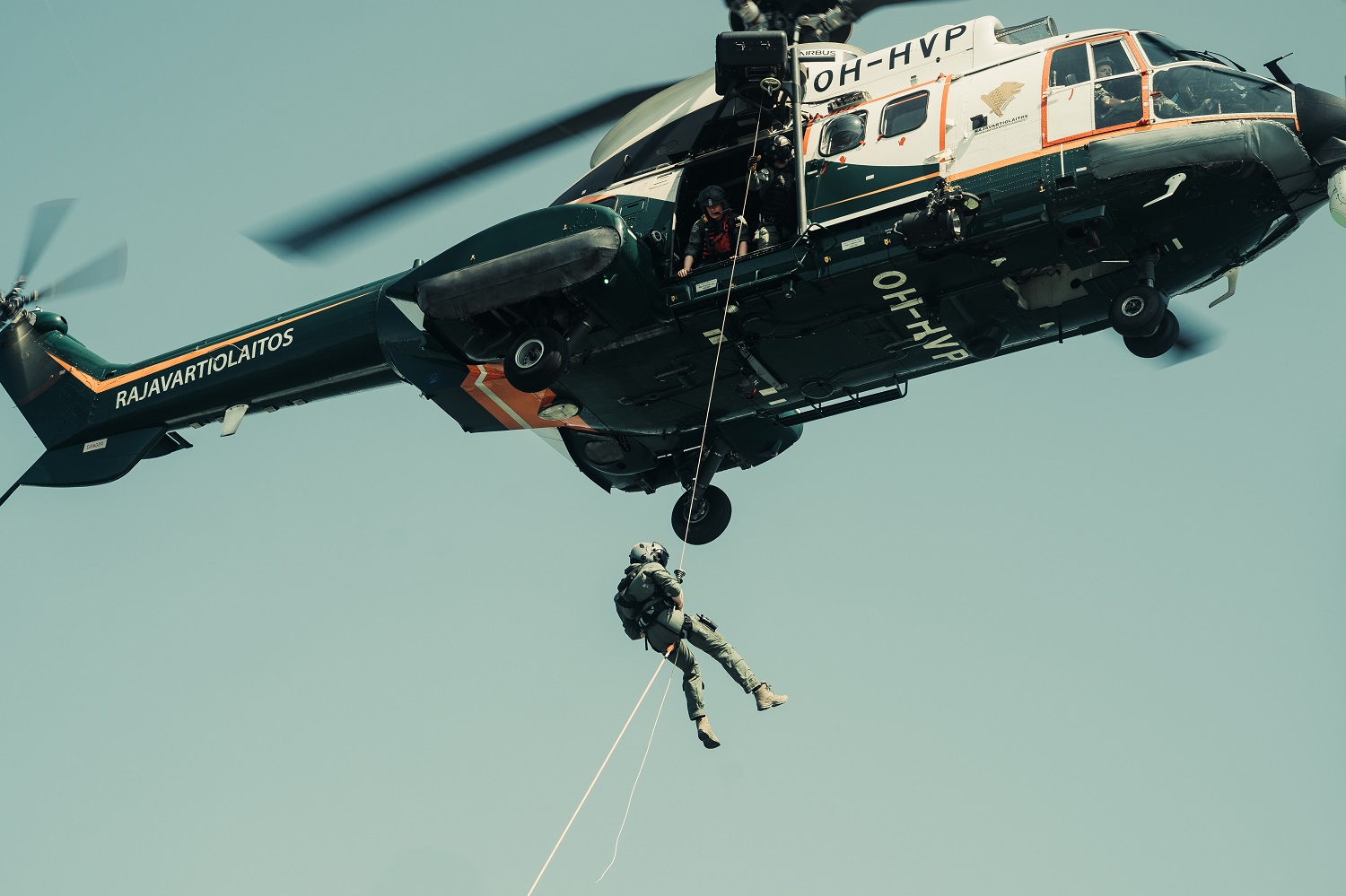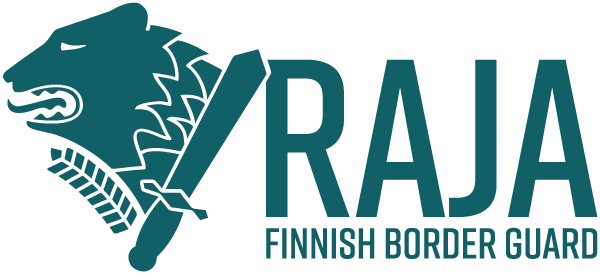
Maritime search and rescue
Maritime search and rescue saves and safeguards lives in emergency situations and dangerous situations in sea areas. It includes a variety of tasks, including saving people in distress at sea, preventing accidents, searching for missing persons, consulting doctors, and maritime rescue medical transports from sea and archipelago areas.
The Finnish Border Guard is the leading maritime search and rescue authority in Finland. We are responsible for organising maritime search and rescue operations. The tasks are managed by the Maritime Rescue Command Centres in Turku and Helsinki. Other authorities and volunteers operating in the sea and coastal areas also participate in maritime search and rescue. Pleasure boats and commercial and passenger vessels located within the sea area can also be called on to assist in maritime search and rescue tasks.
Saving property, such as boats or ships, is not part of maritime search and rescue. The rescue of property is primarily carried out by commercial companies.
The Finnish Border Guard performs its duties within the sea area designated for Finnish maritime search and rescue operations. The boundaries of this sea area have been agreed on by through cooperation agreements with neighbouring countries. The area extends far into international waters, ensuring that every corner of the Baltic Sea falls within the area of responsibility of one state or another.
The Finnish Border Guard is the leading maritime search and rescue authority in Finland. Our operations are based on the Maritime Search and Rescue Act and the Government Decree on Maritime Search and Rescue. We are responsible for the following tasks.
- We handle the planning, development and supervision of maritime search and rescue services.
- We coordinate the activities of the authorities and volunteers involved in maritime search and rescue operations.
- We lead and carry out search and rescue operations.
- We are responsible for the handling of radio communications related to dangerous situations and for the provision of telephone-based medical services to ships.
- We are involved in the prevention of dangerous situations.
- We are responsible for the maritime navigation assistance service.
We are responsible for the reception and transmission of emergency messages transmitted through COSPAS-SARSAT and for the national coordination of matters related to this system.
We provide leadership training for maritime search and rescue operations and, where necessary, other training and education related to maritime search and rescue operations.
In addition to the Border Guard, many other authorities are obliged to participate in maritime search and rescue without charge if the situation so requires. Such authorities include the Emergency Response Centre Agency, the Finnish Meteorological Institute, local rescue departments, the Finnish Transport and Communications Agency, the Finnish Transport Infrastructure Agency, the police, the Defence Forces, the social and health authorities, Customs, and environmental authorities.
Voluntary associations and other entities participate in maritime search and rescue operations in accordance with their own rules and activities. The Border Guard can give work tasks to volunteers, but volunteers cannot be used for tasks that involve significant exercise of public authority.
In addition, any person of working capacity who resides in the vicinity of the danger or accident area is obliged, subject to certain conditions and at the request of the sea and rescue mission coordinator, to participate in the rescue operations. The Maritime Act also obliges other vessels in the accident area to participate, where needed, in search and rescue operations, provided that this can be done without causing additional risk.
The Finnish maritime search and rescue system is based on the organisation of the Border Guard. The administrative management of maritime search and rescue operations takes place at the Headquarters of the Finnish Border Guard. The Headquarters lays the foundation for the operations, sets objectives, and coordinates national and international cooperation. The SAR Coordination Committee, which includes representatives of maritime search and rescue authorities and the most important voluntary organisations, assists in the coordination.
The operational work for maritime search and rescue services is the responsibility of the Coast Guard Districts of Western Finland and the Gulf of Finland, which have their command centres located in Turku and Helsinki. The area within which the Border Guard is responsible for maritime search and rescue operations is divided into two parts: The West Finland Search and Rescue Sub-Region and the Gulf of Finland Search and Rescue Sub-Region. Each coast guard district is responsible for their own region. In addition, a management team has been appointed for each maritime search and rescue region to ensure the coordination of the activities of the authorities and other entities.
Both Coast Guard Districts have a Maritime Rescue Command Centre, which is in charge of field operations, and also a group of maritime search and rescue units moving at sea. The command centres are responsible for maintaining the management and communication readiness of maritime search and rescue services, alerting units, and for radio traffic in maritime search and rescue situations.
The operations of the maritime rescue coordination command centres have sometimes been compared to those of emergency response centres. However, there is one decisive difference. The maritime rescue command centres are not only responsible for receiving the notification and alerting units, but also for managing the rescue tasks themselves.
